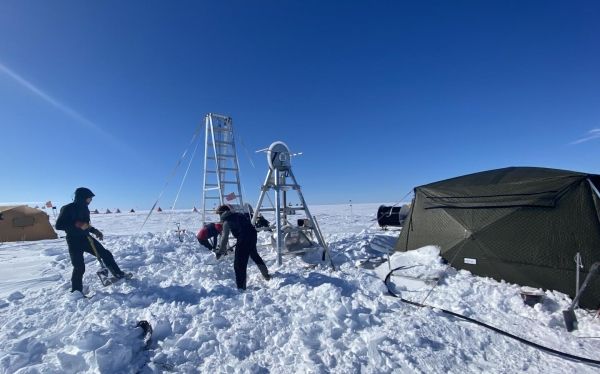A team of scientists has observed, for the first time, the presence of warm water at a vital point underneath a glacier in Antarctica—an alarming discovery that points to the cause behind the gradual melting of this ice shelf while also raising concerns about sea-level rise around the globe.
“Warm waters in this part of the world, as remote as they may seem, should serve as a warning to all of us about the potential dire changes to the planet brought about by climate change,” explains David Holland, director of New York University’s Environmental Fluid Dynamics Laboratory and NYU Abu Dhabi’s Center for Global Sea Level Change, which conducted the research. “If these waters are causing glacier melt in Antarctica, resulting changes in sea level would be felt in more inhabited parts of the world.”
The recorded warm waters—more than two degrees above freezing—flow beneath the Thwaites Glacier, which is part of the Western Antarctic Ice Sheet. The discovery was made at the glacier’s grounding zone—the place at which the ice transitions between resting fully on bedrock and floating on the ocean as an ice shelf and which is key to the overall rate of retreat of a glacier.
Read more at New York University
Image: Researchers digging out the drill site after a three-day storm with winds reaching 50 knots. Drifts of snow accumulated up to five feet. (Credit: David Holland, NYU and NYU Abu Dhabi)


